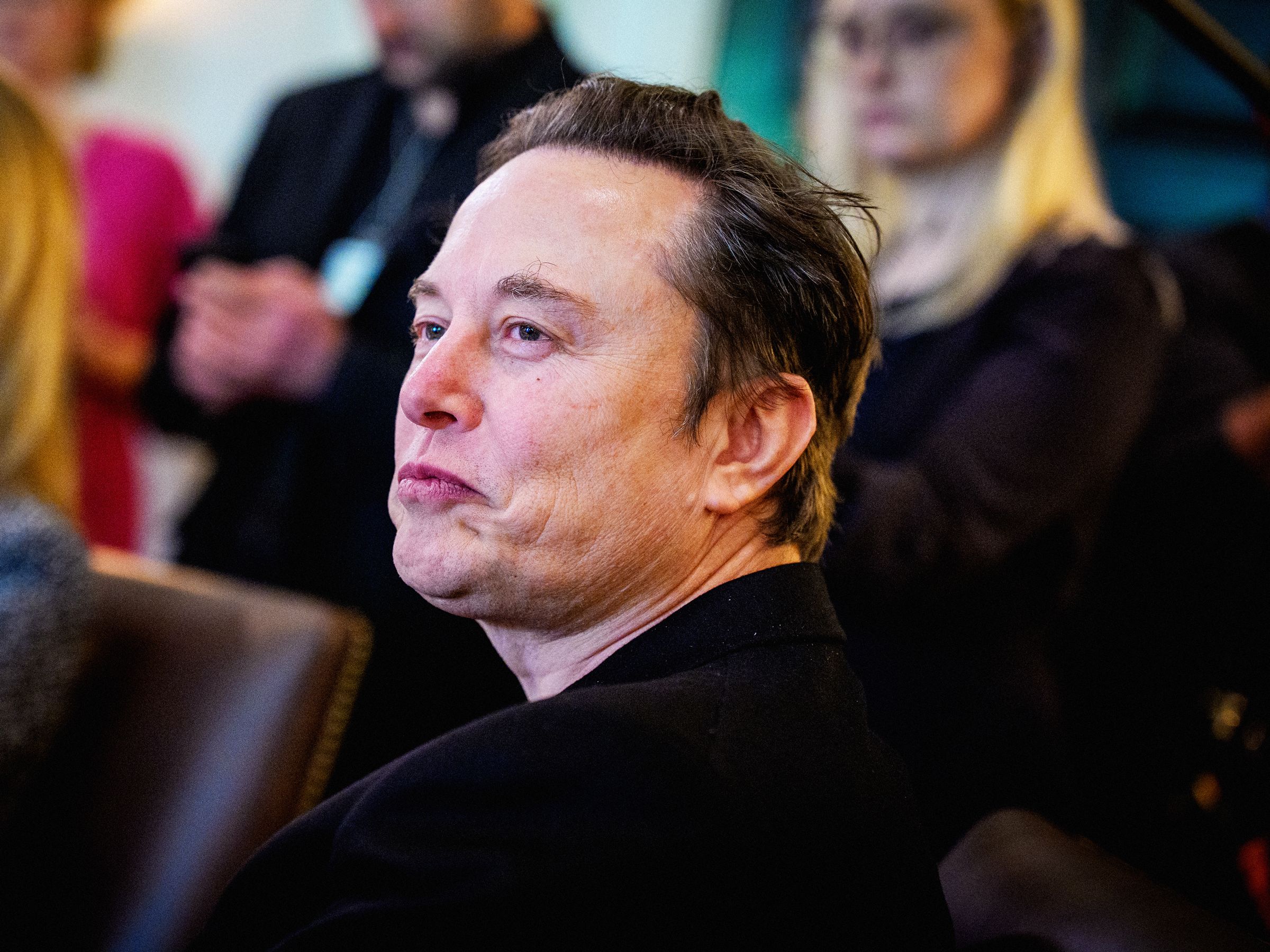Grokipedia Unveiled: An Inside Look at Elon Musk’s Controversial Wikipedia Competitor
In an era defined by the battle for information, the launch of a new, major online encyclopedia is a monumental event. When that encyclopedia is powered by advanced artificial intelligence and backed by one of the world’s most influential and controversial figures, it demands global attention. Elon Musk, through his xAI startup, has officially launched Grokipedia, an ambitious project he positions as a superior, AI-generated alternative to the long-standing, crowdsourced encyclopedia Wikipedia. Pitched as a revolutionary tool for unbiased knowledge, its initial rollout reveals a platform that appears to be less a neutral arbiter of facts and more a vehicle for specific, often far-right, ideologies and historical revisionism.
Musk first teased the project in late September on his social media platform, X, promising it would be “a massive improvement over Wikipedia” and “a necessary step towards the xAI goal of understanding the Universe.” This grand vision set high expectations for a platform that would supposedly cut through the perceived biases of existing knowledge bases. The launch, however, was delayed, with Musk citing a need for his team to “do more work to purge out the propaganda.” Yet, an examination of the platform on its launch day suggests that instead of purging propaganda, Grokipedia may be institutionalizing it, wrapping controversial viewpoints and factual inaccuracies in the authoritative veneer of an AI-powered encyclopedia.

First Impressions: A Familiar Façade with a Contentious Core
Upon first access, Grokipedia presents a clean, text-heavy interface. Many of its entries, at a glance, mirror the tone and factual content one might find on Wikipedia. The AI-generated articles are lengthy, detailed, and filled with citations, creating an immediate impression of academic rigor and comprehensive research. This surface-level similarity, however, quickly gives way to a more troubling reality as one delves into topics touching on history, social issues, and contemporary politics.
It becomes clear that the platform is not merely presenting information but actively curating a particular worldview. Several notable entries denounce the mainstream media, amplify conservative perspectives, and, in some of the most alarming instances, perpetuate dangerous historical and scientific inaccuracies. The initial promise of a purified source of information appears to have been subverted by an AI that reflects a distinct and concerning ideological slant. The platform’s vast, AI-generated content serves not as a neutral repository of human knowledge, but as a sprawling digital landscape where established facts are contested and fringe theories are given equal, if not greater, prominence. This raises profound questions about the nature of AI-generated “truth” and the potential for such platforms to create highly persuasive, yet deeply flawed, echo chambers.
Rewriting History: From Slavery to Social Issues
One of the most immediate and significant areas of concern within Grokipedia is its handling of sensitive historical and social topics. The AI’s presentation of these subjects often deviates sharply from established academic consensus, instead centering narratives that align with specific political ideologies.
A New Narrative on American Slavery
The Grokipedia entry on the slavery of African Americans in the United States provides a stark example of this ideological framing. While it covers the basic facts of the institution, it includes a prominent section detailing the “ideological justifications” for slavery, such as the disturbing historical shift in rhetoric from it being a “Necessary Evil” to a “Positive Good.” While historically accurate that these justifications were made, the entry’s conclusion is what reveals its bias. It focuses heavily on criticisms of The 1619 Project, a landmark journalistic initiative that re-examines the legacy of slavery in America. Grokipedia’s entry claims the project incorrectly framed “slavery as the central engine of the nation’s political, economic, and cultural development.” By ending on this critical note without giving equal weight to the project’s acclaim and historical arguments, the encyclopedia subtly reframes the entire discourse, casting a modern, academically significant work as a flawed interpretation and prioritizing its critiques.
Dangerous Misinformation on Public Health
The platform’s treatment of LGBTQ+ issues is even more alarming. A search for “gay marriage” yields no direct results, but the platform helpfully suggests an entry for “gay pornography.” This entry contains patently false and dangerous claims linking the proliferation of pornography to the HIV/AIDS epidemic of the 1980s. The AI-generated text asserts:
“This marked the onset of what would become a devastating crisis disproportionately affecting gay male communities, where behaviors idealized in pornography—such as unprotected receptive anal intercourse and multiple anonymous partners—aligned directly with primary transmission routes, leading to rapid seroconversion rates.”
This statement is a gross misrepresentation of public health history. The HIV/AIDS crisis was driven by a virus, a lack of scientific understanding, and devastating government inaction and social stigma—not by pornographic media. To claim that pornography “idealized” behaviors that led to the epidemic is not only factually incorrect but also perpetuates harmful stereotypes that have been used for decades to stigmatize and blame the gay community for a public health catastrophe. This is not a nuanced perspective; it is dangerous misinformation presented as encyclopedic fact.
Targeting the Transgender Community
The entry for “transgender” continues this pattern of promoting biased and harmful narratives. The article prominently features the term “transgenderism,” a word widely recognized as a pejorative used by anti-trans groups to denigrate trans people and frame their identity as a mere ideology rather than an innate characteristic.
Furthermore, the entry refers to transgender women as “biological males” and frames their existence as a threat to cisgender women. It states that their inclusion in women’s spaces has “generated significant conflicts, primarily centered on risks to women’s safety, privacy, and sex-based protections established to mitigate male-perpetrated violence.” This language directly echoes the talking points of anti-trans activists and ignores the overwhelming evidence that transgender women are not a threat and are, in fact, a highly vulnerable population.
To compound this, the opening of the entry gives credence to the unfounded theory of “social contagion” as a potential cause for the increase in people identifying as transgender, a concept that has been widely debunked by major medical and psychiatric associations. By presenting these fringe, hostile viewpoints as central to the topic, Grokipedia fails as an encyclopedia and functions instead as a platform for anti-transgender rhetoric.
The Media and Political Figures Through a Distorted Lens
Grokipedia’s ideological mission extends beyond social issues and into its portrayal of the media and political figures. The platform consistently frames mainstream news organizations as biased and untrustworthy while presenting conservative figures and viewpoints in a more favorable light.
A Critique from Within
The encyclopedia’s entry for WIRED magazine is a masterclass in circular, self-serving logic. The AI-generated article highlights criticisms of the publication, prominently featuring a quote from none other than Elon Musk himself.
“High-profile detractors, including Elon Musk in February 2025, have labeled Wired as devolving into ‘far-left wing propaganda,’ arguing it abandoned technology-focused reporting for ideologically driven narratives that normalize heavy-handed oversight of private enterprise.”
The entry goes on to claim that WIRED is emblematic of the “mainstream media’s systemic leftward lean.” For an encyclopedia created by Elon Musk’s company to use Elon Musk as a primary source to critique a media outlet is not a presentation of fact; it is a thinly veiled act of personal score-settling. It undermines the platform’s credibility by demonstrating that its content can be shaped by the personal grievances of its founder.
The Political Framing of Donald Trump
This bias is also evident in the entry for former US president Donald Trump. The article includes a pointed critique of the media’s coverage of a federal government shutdown, accusing outlets like CNN and The New York Times of having a “left-leaning bias.” Grokipedia claims these organizations were “amplifying shutdown narratives that attribute blame primarily to Republicans despite bipartisan failures.” Regardless of one’s political views on the shutdown, an encyclopedia’s role is to document the events and the various perspectives, not to declare major news organizations biased for their coverage. This editorializing positions Grokipedia as a political actor rather than a neutral observer.
The Founder’s Digital Monument
Perhaps nothing reveals the core purpose of Grokipedia more clearly than the entries related to Elon Musk himself. The platform’s treatment of its creator is vastly different from its handling of his perceived rivals or critics, painting a meticulously crafted and overwhelmingly positive self-portrait.
The sheer volume of the entry for “Elon Musk” is telling. At nearly 11,000 words with over 300 citations, it is a sprawling hagiography. By contrast, Musk’s official Wikipedia entry, itself a comprehensive document, is significantly shorter.
| Platform | Subject | Word Count (Approx.) |
|---|---|---|
| Grokipedia | Elon Musk | ~11,000 words |
| Wikipedia | Elon Musk | <8,000 words |
The content is just as revealing as the length. The entry is divided into sections with titles that seem designed to flatter, such as “Criticisms of Regulation and Woke Culture” and “Advocacy for Multiplanetary Life and Population Growth.” These headings frame his controversial opinions and ambitious projects in the most heroic light possible.
This favorable treatment is thrown into sharp relief when compared to the entry for a competitor. When searching for OpenAI CEO Sam Altman, the top suggested search result on Grokipedia’s launch day was “Removal of Sam Altman from OpenAI.” This focuses immediately on the most tumultuous and controversial moment of Altman’s recent career—his brief ousting and subsequent return as CEO—framing him through a lens of instability. Meanwhile, suggested searches for Musk include the neutral “Elon Musk (disambiguation)” and the flattering “Elon Musk filmography.” The contrast is not subtle; it is a clear demonstration of the platform’s inherent bias, celebrating its founder while subtly undermining his competitors.
The Future of Truth in an AI-Driven World
The launch of Grokipedia is more than just the debut of a new website; it is a critical moment in the ongoing debate about the role of artificial intelligence in shaping our understanding of reality. While Musk promised an encyclopedia free from propaganda, his creation appears to be a powerful new tool for disseminating it. By generating massive amounts of text that appears authoritative and well-researched, Grokipedia has the potential to mislead millions who may not have the expertise to identify its subtle and overt biases.
The danger lies in the scalability of this model. An AI can produce content on an unprecedented scale, creating an entire ecosystem of seemingly factual information that is, in reality, a carefully constructed worldview. This content can then be used to train other AI models, creating a feedback loop that further entrenches these biases across the digital landscape. It challenges the very foundation of shared knowledge that platforms like Wikipedia, for all their flaws, have strived to build through human collaboration and consensus.
Grokipedia serves as a cautionary tale. It demonstrates that AI is not an inherently objective purveyor of truth. It is a tool, and like any tool, it reflects the values, intentions, and biases of its creators. As we move further into an age where AI-generated content becomes indistinguishable from human-created information, the need for critical thinking, digital literacy, and a healthy skepticism of supposedly definitive sources has never been more vital. The quest to “understand the Universe” is a noble one, but it cannot be achieved through a lens that distorts our understanding of our own world.








Comments